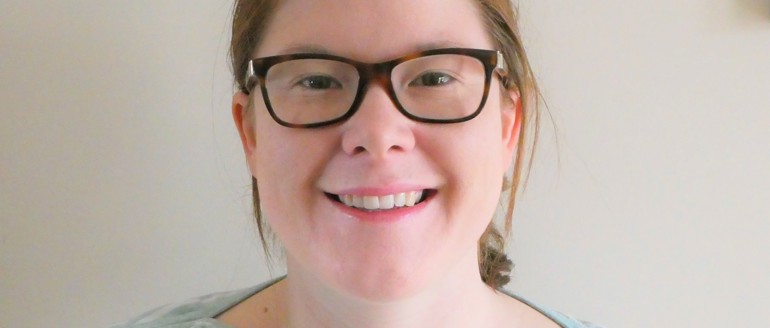Abby's training story
Dr Abigail MacKintosh is a Specialist Respiratory Registrar at the West Midlands Deanery and BTS Specialty Trainee Advisory Group Chair.
What was your route through training?
After finishing medical school in 2013, I completed Foundation Training before doing a year out of training working in palliative care in a Hospice. I then entered Core Medical Training (now IMT 1-3) before applying for respiratory medicine training.
I started training as a respiratory registrar in 2018, initially full-time. I took my first break from training in 2019 when I had my first child and have had two further breaks from training since. One to complete an OOP doing the RCP Chief Registrar programme, and another when I had a second baby at the end of 2023. I have worked 60% LTFT since having my first child and have the perfect balance between work and family life; the only downside is that I will be a registrar for a very long time.
During my training, I have taken on various trainee representative roles from RCP Associate College Tutor to Respiratory LTFT Trainee Rep. My Chief Registrar year was a great introduction to NHS Leadership and Management, and since then, I have taken on the role of Chair of the BTS Specialty Trainee Advisory Group.
Can you share some examples/experiences of what helped you navigate training?
The most helpful thing in navigating training for me has always been having more supportive senior role models. I have never had any formal mentoring, but have been lucky to work with inspiring female consultants in whom I can see my future self. Informal mentoring and support have been invaluable to show me what is possible and to give me the confidence to know I can balance and enjoy family life and still have a fulfilling and successful career; the journey might just be a little bit longer.
What tips do you have for job planning/career development?
Rotational training can be frustrating at the best of times, being LTFT prolongs this and comes with additional challenges of negotiating non-working days and ensuring correct LTFT rotas and pay schedules. It is important to know the contract and rules around LTFT working as a trainee, as you often have to fight your own corner to ensure things are correct. You need resilience as it can often feel like you are the first time a staffing department has encountered a LTFT trainee.
If you train LTFT you need to keep track of where in training you are pro rata. Know where on the curriculum decision aid you are up to and enter ARCP aware of this, as panels don’t always realise and may have unrealistic expectations of what should be achieved. You have to be quite proactive in managing your own training.
There are lots of areas of support for LTFT training, surround yourself with these as they are very valuable for asking questions about pay and rotas and educating yourself on what’s right. We have a local WhatsApp group for all the LTFT trainees, and there is a national Facebook group which is a great source of advice.
What advice would you give to women starting out in respiratory?
Enjoy the journey, it’s not all about the destination. So, if you want to take some time out for life or for an additional career opportunity, do it. I nearly didn’t do my OOP Chief Registrar year because I knew it would prolong my training even further, but I would have regretted not doing it.
What are the barriers, and what helps?
The main negative, rather than barrier, for me has been just how long training takes with breaks for maternity leave, working less than full time for family life, etc. and seeing peers progress and become a Consultant. I just keep trying to see the silver lining, I’ve had more opportunities come my way having been a trainee for longer. And I come with more life experience to my consultant job in the future which I think can only be a positive thing.
The other huge barrier/frustration is just the lack of flexibility with anything to do with rotational training. I am lucky that I can try and bring some of that flexibility by being LTFT and having a non-medical husband. But juggling and trying to fit life around the inflexibility of a medical registrar rota is painful. I haven’t found much helps other than trying to be as organised as possible and taking some deep breaths.



